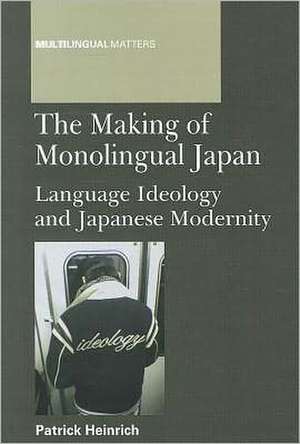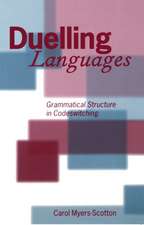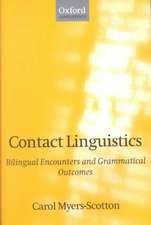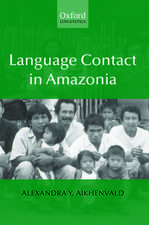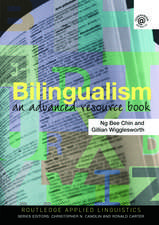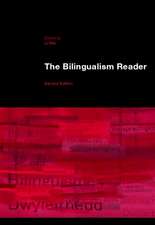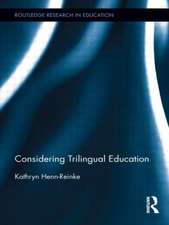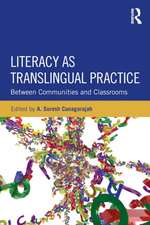The Making of Monolingual Japan: Multilingual Matters
Autor Patrick Heinrichen Limba Engleză Paperback – 12 feb 2012
Din seria Multilingual Matters
- 18%
 Preț: 626.63 lei
Preț: 626.63 lei -
 Preț: 297.65 lei
Preț: 297.65 lei -
 Preț: 218.63 lei
Preț: 218.63 lei - 18%
 Preț: 627.05 lei
Preț: 627.05 lei -
 Preț: 191.40 lei
Preț: 191.40 lei - 18%
 Preț: 752.25 lei
Preț: 752.25 lei -
 Preț: 191.49 lei
Preț: 191.49 lei - 23%
 Preț: 720.29 lei
Preț: 720.29 lei - 23%
 Preț: 891.83 lei
Preț: 891.83 lei -
 Preț: 259.42 lei
Preț: 259.42 lei -
 Preț: 258.41 lei
Preț: 258.41 lei -
 Preț: 254.80 lei
Preț: 254.80 lei -
 Preț: 304.69 lei
Preț: 304.69 lei -
 Preț: 299.29 lei
Preț: 299.29 lei - 23%
 Preț: 1105.67 lei
Preț: 1105.67 lei -
 Preț: 255.64 lei
Preț: 255.64 lei -
 Preț: 259.64 lei
Preț: 259.64 lei - 23%
 Preț: 776.92 lei
Preț: 776.92 lei -
 Preț: 267.54 lei
Preț: 267.54 lei - 23%
 Preț: 890.81 lei
Preț: 890.81 lei - 23%
 Preț: 775.54 lei
Preț: 775.54 lei - 23%
 Preț: 775.44 lei
Preț: 775.44 lei -
 Preț: 260.96 lei
Preț: 260.96 lei -
 Preț: 255.39 lei
Preț: 255.39 lei -
 Preț: 307.95 lei
Preț: 307.95 lei -
 Preț: 291.57 lei
Preț: 291.57 lei -
 Preț: 293.54 lei
Preț: 293.54 lei -
 Preț: 296.42 lei
Preț: 296.42 lei -
 Preț: 294.46 lei
Preț: 294.46 lei - 23%
 Preț: 774.98 lei
Preț: 774.98 lei -
 Preț: 298.33 lei
Preț: 298.33 lei - 23%
 Preț: 773.51 lei
Preț: 773.51 lei - 23%
 Preț: 834.91 lei
Preț: 834.91 lei - 23%
 Preț: 777.20 lei
Preț: 777.20 lei -
 Preț: 444.76 lei
Preț: 444.76 lei - 23%
 Preț: 929.72 lei
Preț: 929.72 lei - 23%
 Preț: 721.76 lei
Preț: 721.76 lei -
 Preț: 259.27 lei
Preț: 259.27 lei -
 Preț: 257.13 lei
Preț: 257.13 lei -
 Preț: 318.53 lei
Preț: 318.53 lei -
 Preț: 255.01 lei
Preț: 255.01 lei -
 Preț: 298.91 lei
Preț: 298.91 lei -
 Preț: 254.25 lei
Preț: 254.25 lei - 14%
 Preț: 778.48 lei
Preț: 778.48 lei
Preț: 292.73 lei
Nou
Puncte Express: 439
Preț estimativ în valută:
56.02€ • 60.83$ • 47.06£
56.02€ • 60.83$ • 47.06£
Carte tipărită la comandă
Livrare economică 22 aprilie-06 mai
Preluare comenzi: 021 569.72.76
Specificații
ISBN-13: 9781847696564
ISBN-10: 1847696562
Pagini: 204
Dimensiuni: 145 x 208 x 13 mm
Greutate: 0.3 kg
Editura: Multilingual Matters Limited
Seria Multilingual Matters
ISBN-10: 1847696562
Pagini: 204
Dimensiuni: 145 x 208 x 13 mm
Greutate: 0.3 kg
Editura: Multilingual Matters Limited
Seria Multilingual Matters
Notă biografică
Cuprins
1. Language ideology as a field of inquiry 2. The call of Mori Arinori to replace Japanese 3. The creation of a modern voice 4. The unification of Japanese 5. The linguistic assimilation of Ryukyuans and Ainu 6. The most beautiful language in the world 7. Language ideology as self-fulfilling prophecy 8. Current challenges to modernist language ideology 9. Language ideology in twenty-first century Japan
Recenzii
The study of ideologies of language diversity is key to any understanding of modern language ecologies. Patrick Heinrich's monograph investigates the modernization of Japanese, tracks the rise of Japanese linguism and reveals the myth of Japan as a monolingual nation. He takes an active stance towards the subjugation of the Ryukyuan languages as mere dialects of Japanese as well as the repression of the language of the autochthonous Ainu. This publication presents a thorough analysis of the current language situation of Japan and provides an important reading on the impact of language ideologies on language ecologies.Matthias Brenzinger, University of Cape Town, South AfricaDr Heinrich's book gives the Anglophone world information that was not easily available before. Now there are no excuses for sweeping claims about Japan and its language practices. With this book we have the detail to permit more nuanced assessment.Sue Wright, Emeritus Professor, Centre for European and International Studies Research, UK
